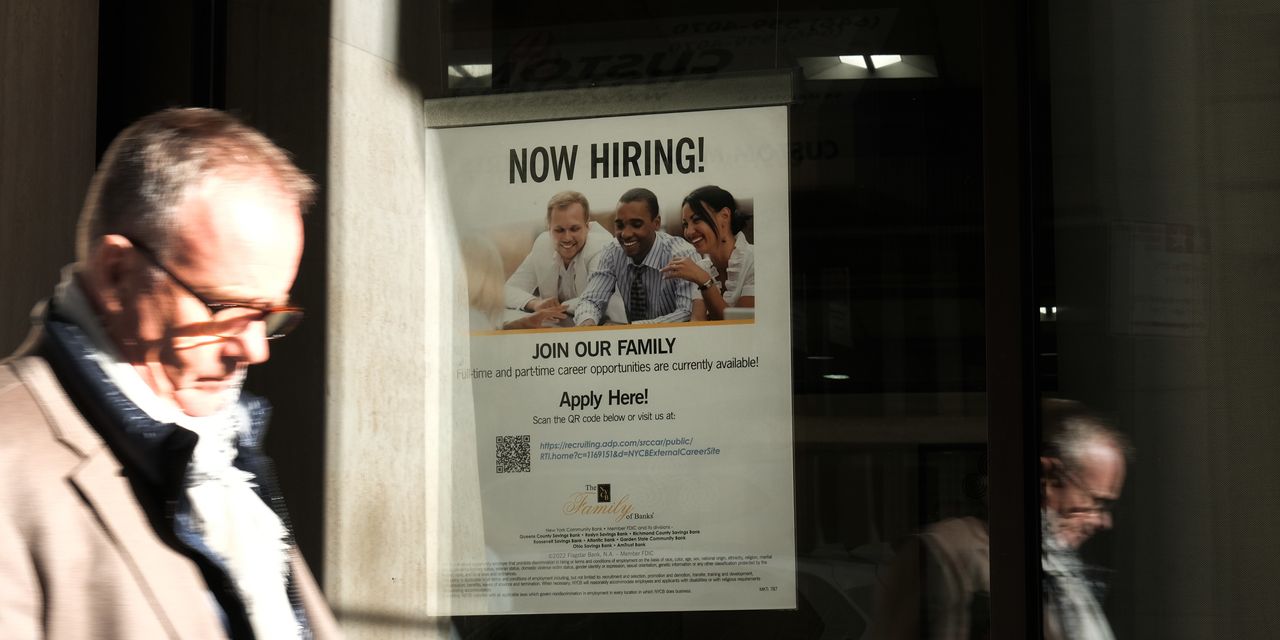The average cost of employer-based health insurance increased by 7% this year after minimal cost increases last year, according to a new analysis.
The cost of family premiums climbed to an average $23,968, KFF researchers said in their yearly survey of employer health benefits.
The premiums for individual insurance coverage increased to $8,435. Both are 7% average increases after a 2% increase for individual premiums last year and a 1% increase for family premiums.
“Rising employer health care premiums have resumed their nasty ways, a reminder that while the nation has made great progress expanding coverage, people continue to struggle with medical bills, and overall the nation has no strategy on health costs,” said Drew Altman, president and CEO of KFF, a foundation focused on public health matters.
Workers paid an average $6,575 for the family premium — up almost $500 from last year — while employers covered the remainder, Wednesday’s research showed. People with single coverage paid just over $1,400 on average, the study said.
Employees at smaller businesses tended to pay more towards their family premium than people at bigger firms, researchers noted.
The KFF survey on health-insurance costs is another reminder of the continuing squeeze that workers and employers are under from inflation — and also the particular woes of high-priced healthcare in America. AHIP, a trade group representing major health-insurance companies, did not immediately respond to MarketWatch’s request for comment.
The increased premium costs comes as inflation rates are creeping back from four-decade highs. Inflation increased 0.4% in September on a monthly basis and was 3.7% year-over-year, according to the Bureau of Labor Statistics. The numbers were slightly hotter than economists’ expectations.
It also comes in a job market that’s still hiring. The economy added 336,000 new jobs in September, which was nearly double the forecasted amount of new jobs.
“Inflation is the story this year for premiums, but we shouldn’t be myopic when we think about costs in the healthcare system,” said Matthew Rae, associate director for KFF’s Health Care Marketplace Program. There are other factors at play too, he noted.
The complicated costs on premiums boils down to a simple concept: it’s the prices people pay for healthcare services times the amount of services people use, Rae explained.
Higher costs and higher wages are pushing up premium costs, but another factor is the pent-up demand for healthcare services people may have skipped earlier in the pandemics. More utilization of healthcare pushes up price, he said.
Another factor is consolidation in the healthcare insurance market and pricey medications and treatments. “Those can be lifesaving and life-changing, but they absolutely cost a lot of money,” Rae said.
Workers may have to spend even more for health coverage going forward. Almost one quarter, 23%, of employers said they will increase the amount of worker contributions for health insurance in the coming two years, KFF’s survey said.
Nearly 153 million people have coverage through work-sponsored health insurance either directly or as a dependent of an employee, KFF notes.
The survey also looked at the state of abortion-related healthcare after the U.S. Supreme Court struck down the federal right to an abortion under Roe v. Wade. The court’s 2022 decision left abortion laws to states and the range of laws have created a range of employer responses.
Almost one third (32%) of large employers, with at least 200 workers, said they cover abortion in all or most instances. Meanwhile, 40% of these employers said they did not know about the extent of their abortion coverage, either because the policies were changing or they did not know the details.
Ten percent of employers didn’t cover abortion in any circumstances and 18% said coverage only applied for rape, incest or health endangerment.
Covering travel expenses for out-of-state abortions is one company response, but Wednesday’s data suggests it’s most likely coming from large companies. Nearly two in 10 large companies, with over 5,000 workers, offered or planned to offer travel reimbursements for abortion care.
In a broader pool of companies with at least 200 workers, 7% of the employers said they offered travel reimbursement.
Related: The ‘tragedy’ of American healthcare: Olympic gymnast Mary Lou Retton’s family is crowdsourcing for her hospital bills. She’s not alone.
Read the full article here





